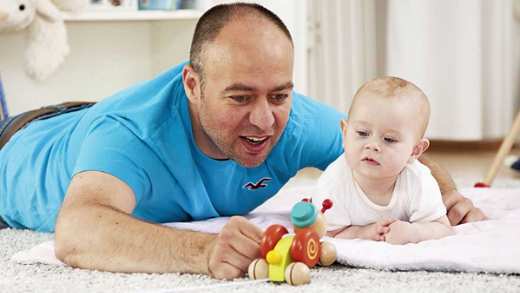At Aviva, we know that looking after family is top of everyone’s list. Putting various safety nets in place is a big part of this. We also understand that when it comes to life insurance, it can feel a little overwhelming. The main question on everyone’s lips when they think about life insurance is the cost. People think that something as important as life insurance must be very expensive – but with policies starting from as little as €10 per month1, it really can be affordable.
So, how do you go about figuring out just how much life insurance you need? You should always speak to a financial adviser, because the amount of life insurance you need is as individual as you are. Before you speak to an adviser however, there are some things you should consider yourself first.
Let’s get to the nitty gritty of what you need to consider before speaking to a financial adviser. These things will be your first steps to getting your life insurance sorted.

Consider how much protection you and your family need
- What is your total household income? How much of this do you yourself earn?
- What costs would no longer be applicable to your family? Are there car payments that would no longer be required?
- What outstanding debts might your family have? You may have a mortgage, car payments, or a home improvement loan for instance.
Work out what monthly payment would be affordable for you to pay
You need to be careful when considering what you can afford to pay each month for your life insurance. Figure out how much is feasible for your circumstances. If you already have a monthly surplus of income, you could consider putting some of this toward a life insurance policy.
This may not be the case for some of us, however. So, if you don’t have a surplus of cash at the end of the month to put toward your life insurance, a good option would be to try cut down your monthly expenditure and use the small savings you make from that. We don’t mean crazy cutbacks, because that just isn’t realistic. Check out our top ways to make some smart and savvy changes which has small tweaks you can make here and there, that over a couple of months will make surprisingly big savings for your pocket.
Know what you already have
Consider any insurance or benefits you already have in place. If you have a mortgage for instance, that means you also have mortgage protection, and your employer might have some benefits in place for staff. Knowing what policies you already have might impact how much life insurance you need.
Mortgage protection – When buying a home in Ireland and financing the purchase by way of mortgage, Lenders generally require a mortgage protection policy to be obtained by the borrower/s. With a mortgage protection policy, in the event of your death, your mortgage will be paid off in full if your cover is up to date. This means your partner and/or dependents will not be left with monthly mortgage payments to keep a roof over their head. For a refresher on Mortgage Protection, if you need it, try our guide mortgage protection 101.
Death-in-service benefit – If you are employed, your employer may offer you a death-in-service benefit. This means, that in the event of your death, your employer would pay three to five times your annual salary in a non-taxable, lump sum to your family. Chat to your employer for full details on what they have in place for their staff.
You could also take a look at our dummies guide to life insurance, where we run-through all available life insurance products and how each one works.
Think about how long you would need life insurance for
If you have children, you may consider having life insurance cover in place until they are in their mid-20s. This would allow them to finish college or get a job and get on their way to being financially independent.
For example, if your youngest child is 10 years old, you may consider a life insurance term of 12 years so that it sees them into the start of their career.
Once you’ve had a think over all of these factors, you’re all set to speak to your financial adviser. Hopefully we’ve helped break down the necessary steps for you.
If you’d like to chat to one of our financial advisers about your next steps, you can call us on 1800 555 255.













